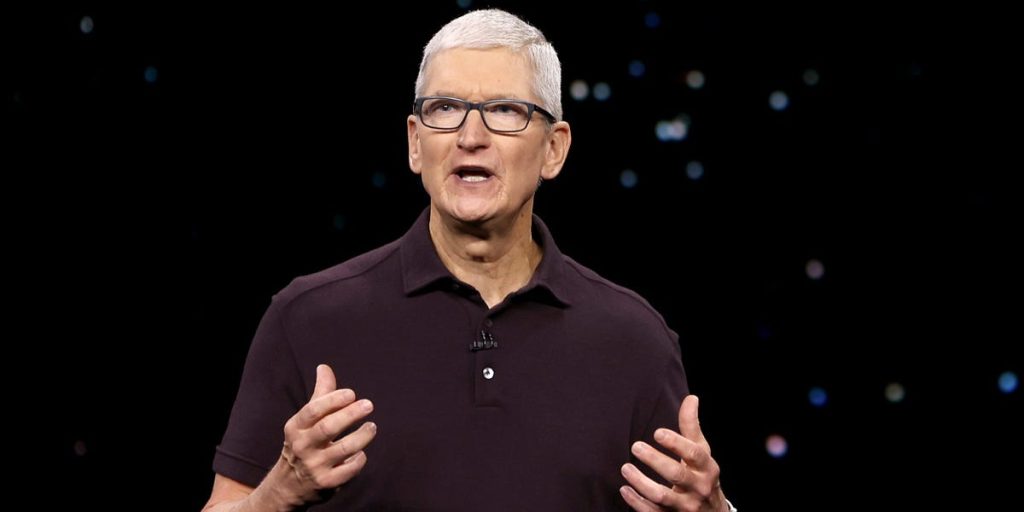- Tim Cook is back in China.
- The Apple CEO made his second known trip to China this year as iPhone sales struggle.
- The visit is a sign that Apple desperately needs to keep China on its side.
When Tim Cook visited China in March this year, he was there to heap praise on the country for its history of innovation. Several months on, the Apple CEO is back on the charm offensive.
Cook landed in China this week for his second known trip to the country this year — this time unannounced — traveling to various locations to meet the people who help keep the cogs turning in the iPhone maker’s most important international market.
In Beijing, Cook met China’s commerce minister Wang Wentao, a statement from the government’s commerce ministry said.
In Chengdu, which is hundreds of miles from Beijing, he visited an Apple store hosting a Tencent gaming tournament, Bloomberg reported.
Tencent, it’s worth noting, is the developer of multibillion-dollar mobile game “Honor of Kings,” which has been a hit in Apple’s App Store.
As a US tech CEO, it’s an incredibly rare move for Cook to make two trips to China in a year, even if Apple celebrated its 30th anniversary in the country in August. Tensions between the US and China have made engagement a complex affair.
Elon Musk, the other big US tech CEO with a lot at stake in China, made his first trip in three years to China this year after landing there in May this year. The Tesla CEO was radio silent online about his trip while visiting.
So why, exactly, is Cook back in China? It’s simple: Apple’s future prosperity in the country is no longer guaranteed. Cook needs to do something about it, and fast.
First, the iPhone isn’t as much of a hit as it used to be.
In the first 17 days since its release, sales of the iPhone 15 are down 4.5% compared with sales of the iPhone 14 last year, data from market researchers Counterpoint Research, which Bloomberg cited, showed.
Part of the challenge has been competition. In a stunning turning of the tables, Apple has reportedly been outpaced in some areas by Chinese powerhouse Huawei, which introduced a competitive alternative to the iPhone this year, the 5G-enabled Mate 60 Pro.
Cook will also have heard reports emerge last month that Beijing had banned the use of iPhones by government officials. The Chinese government later denied these reports, though Apple suffered a huge $200 billion market capitalization loss in the days that followed.
Despite the denial, the potential for a clampdown against a backdrop of rising tensions is enough to keep Cook up at night. That’s particularly true as the next phase of Apple’s own innovation hinges on China.
Chinese contract manufacturer Luxshare has been tasked with the assembly of Apple’s Vision Pro, the upcoming mixed-reality headset due for release next year. Given Apple’s dependence on China as a manufacturing hub, it can’t afford to lose its appeal there.
As he grapples with these mounting challenges, Cook will no doubt continue to turn on the charm in China.
Read the full article here





